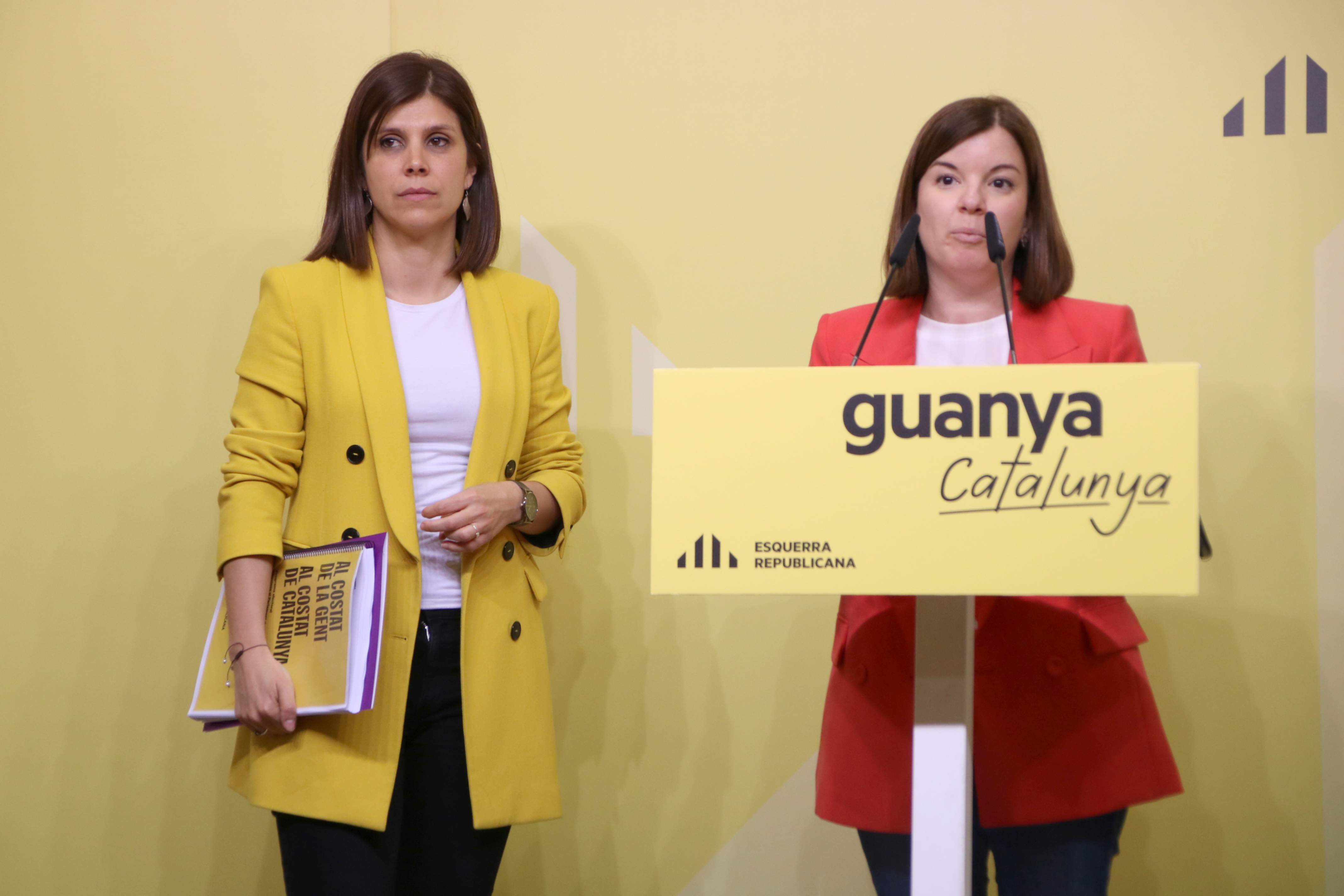An 170-page document, containing more than 500 measures, which also includes the "work done" by Pere Aragonès's Catalan government, and with the focus on the referendum agreed with the state, the proposal for a unique funding system for Catalonia and the defence of the Catalan language. This is the electoral programme of the Republican Left of Catalonia (ERC) with which the party candidacy led by current president Aragonès is running in the election that he himself called for May 12th. It was presented by the party's deputy general secretary, Marta Vilalta, who will once again be number 1 on the Republicans' candidacy for Lleida, and the spokesperson for the Senate, Sara Bailac. ERC, which has sought to define itself as the party with the proposals in this pre-campaign, accusing the other parties of not having any, is the first party to present its election manifesto.
Since Aragonès announced the snap election, the Catalan government and the president himself have launched a string of proposals such as the unique funding proposal for Catalonia, the plan for an agreed referendum with the Spanish state - detailing some of its characteristics, such as the question to be asked - and the creation of a ministry for the Catalan language, which is in a delicate situation due to recent decline in use in society. These are reflected in the ERC election programme, with the main proposals divided into six large blocks. "All of these have an outstanding proposal, they include the key milestones of the [incumbent] ERC government and they break with the autonomous community framework by raising the republican horizon", added Bailac.
The party's "historic defence" of the referendum
The proposal that opens the ERC election programme is that of an independence referendum agreed with the state, as they have been defending during the past legislature. "The commitment of Esquerra Republicana is to work, in the negotiation spaces, on a proposal that includes the broad social consensus in Catalonia around the exercising of the right to self-determination and constructing an accord that establishes the procedure so that the people of Catalonia will vote again on the country's independence," the document states. Marta Vilalta underlined the "work done" by her party in this regard: "It is not a proposal that appears now by magic, but rather it is ERC's historic defence of the exercising of self-determination".
One of the other elements which has gained weight in the electoral programme of Esquerra is the fight against racism and, in this respect, they regard as important the proposal achieving the transfer of competencies to Catalonia in matters of immigration. This was an issue that was put on the table after Junts agreed with the PSOE on the delegation of powers, claiming to be able to expel migrants from Catalonia who are judicial re-offenders, a proposal that ERC rejected. Now, the party insists in its programme that these powers "must make it possible to make more and better public policies to guarantee social cohesion, human rights and the national construction of the country". Along the same lines, the Aragonès candidacy adds the fight against the far right to their "republican commitment", considering that by fighting the extremists you can reach a "true advanced and consolidated democracy, urging political forces to make anti-fascism one more of the shared struggles as a symbol of the defence of human rights, the fight against disinformation and the cornering of hate speech."

